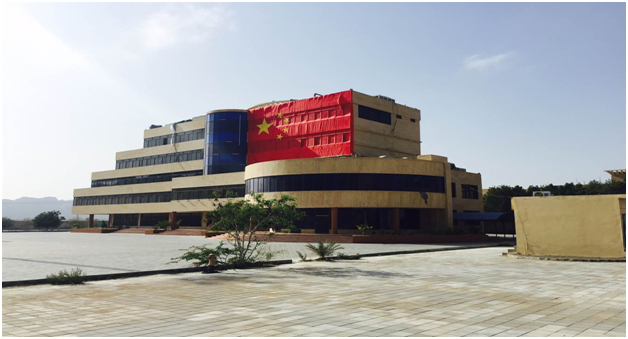China Warns India: Hands Off Balochistan

NEW DELHI: Beijing has broken its silence over Prime Minister Narendra Modi’s remarks on Balochistan with an influential think tank maintaining that “China will have to get involved if India intervenes in Balochistan.”
This sharp response given through an interview to IANS has already elicited a statement from the Congress party that has urged PM Modi to officially ask China what this involvement means.
In an interview to India’s IANS, Hu Shisheng, the director of the Institute of South and Southeast Asian and Oceanian Studies at the China Institute of Contemporary International Relations (CICIR), said that India’s growing ties with the United States, and its new position on the South China Sea were ringing alarm bells in Beijing.
“The latest concern for China is Prime Minister Narendra Modi’s speech from the Red Fort in which he referred to the issues like Kashmir (occupied by Pakistan) and Balochistan,” Hu said.
“It could be regarded as a watershed moment in India’s policy towards Pakistan. ” he added.
Hu said China fears India may use “anti-government” elements in Pakistan’s restive Balochistan where Beijing is building the $46 billion CPEC -- a key to the success of its ambitious One Road One Belt project.
“There is concern that India may take the same approach, which is believed by the Indian side Pakistan is taking, asymmetrically using anti-government factors in Pakistan,” Hu said according to IANS.
“If this kind of plot causes damage to the CPEC, China will have to get involved,” he said, referring to the alleged involvement of India in backing separatists in Balochistan, Gilgit-Baltistan and Pakistan-occupied Kashmir (PoK).
PM Modi’s decision to put the spotlights on Balochistan, with India now openly embracing what was earlier at best a covert program, was expected to elicit a China response by foreign policy experts here. More so as the CPEC is a prestigious program for China, connecting Xinjiang with the Gwadar port in Balochistan. This corridor passes through PoK and Gilgit-Baltistan. India has consistently refused to join or support China’s One Belt, One Road program from the outset.
Hu told IANS, “This will not help Pakistan to become a normal country. And it will also further disturb India-China relations.”
Hu in fact spelt out the Chinese position on India’s relations with the US saying earlier they were not so concerned but the growing relations under PM Modi were sending an “alarming signal to China. It is a concern for China.”
He said it was imperative for India to resist the pressure being exerted by the US and Japan to counter China several issues said that earlier China was not particularly worried about growing India-US relations but now was concerned” Hu pointed out. He said this specifically on the increase in defence, technology and trade ties, referring alo to the Logistics Agreement being signed by India and the US.
“We also know that the US and Japan, as well as Australia, are very keen on getting India in their camp. They are also exerting pressure”he added.“They are also luring India by giving high-technology deals and advanced military weapons. It is up to India whether India can resist this kind of temptation.”
On India’s stand on the South China Sea, Hu added.“In the past, India’s stand on the South China Sea was impartial. Indian is getting more and more involved. This attitude is another concern for China.”
“Our problem is with the US. We can see India is becoming more vocal in issuing joint statements with the US and Japan on the South China Sea,” he added.
China that usually makes its policy known through controlled media, and think tank experts, has sent out what experts here point out, is a clear warning to India through this interview. It has flagged issues of concern. The message is clearly for India to keep out of Balochistan and not disturb multi million dollar projects; to keep out of the South China Sea dispute and not take the side of US and Japan as it has been doing so increasingly; and to go slow on developing this exclusive military relationship with the US as it will impact on India-China ties.
The open warning that China will get involved, is serious and as experts pointed out here, New Delhi will have to factor this in as it moves on both Balochistan and the South China Sea issues.
( Cover photograph: A 30-by-45-foot Chinese flag draping the port authority building at Gwadar port)



